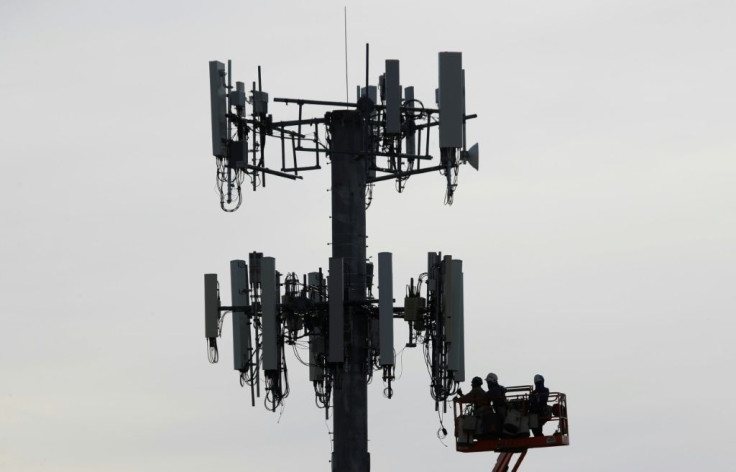France Won't Bar But May Restrict Huawei In 5G Network
France on Thursday said it would not bow to American pressure to exclude Huawei from supplying equipment for its 5G networks, though the Chinese telecommunications firm could be subject to restrictions.
Taking a stance echoing those of Britain and the European Union, Economy and Finance Minister Bruno Le Maire said Paris could prioritise European operators as it begins preparations to roll out the 5G network.
"There is no discrimination towards Huawei... No, Huawei will not be excluded from the 5G in France," Le Maire told BFM TV.
But he added "the French state will take precautions to protect our sovereign interests", especially near nuclear and military installations. Also, "it is understandable that we could prioritise a European operator" such as Nokia or Ericsson, he added.
5G stands for fifth generation, the latest in cellular mobile communications offering vastly higher speeds which could unlock a variety of new applications.
There has been intense debate in Europe about whether or not to exclude Huawei from supplying equipment for 5G mobile networks.
Critics, led by Washington, say Huawei is too close to Beijing and its equipment could be used as a tool for spying -- a contention the company strongly rejects.
US President Donald Trump has already ordered American firms to cease doing business with Huawei, and has urged allies to follow suit.
US Attorney General Bill Barr last week said the United States and its allies should take controlling stakes in Nokia, Ericsson or both to battle Huawei's dominance of the 5G market.
Asked if France could give preferential treatment to Nokia of Finland and Ericsson of Sweden, Le Maire replied: "We have two European operators who supply 5G and supply quality equipment.
"It is normal if we look first if they can provide the solution. And I think our Chinese partners can understand that."
He insisted: "Huawei will be not be discriminated against. If Huawei has a better offer from a technical point of view or price it can have access to 5G in France."

Britain last month allowed the use of Huawei equipment it is 5G networks, but excluded the Chinese firm from "sensitive" core infrastructure.
The European Union followed suit, limiting but not banning Huawei equipment in 5G networks.
Le Maire's comments came as the Wall Street Journal reported that the Trump administration believes Huawei can covertly access mobile networks around the world through "back doors" designed for use by law enforcement.
It cited US officials saying the company has had this "secret capability" for more than a decade.
The US kept the intelligence highly classified until late last year, when officials provided details to allies including Britain and Germany, the paper said.
However Huawei vehemently denied the report, saying in a statement it "has never and will never covertly access telecom networks, nor do we have the capability to do so."
It said that even the WSJ conceded US officials "are unable to provide any concrete details concerning these so-called 'back doors'."
The EU has struggled to find a middle way to balance Huawei's huge dominance in the 5G sector with security concerns pressed by Washington.
With Huawei widely viewed as providing the most advanced 5G equipment, British telecoms group BT said it would take a ?500-million (590-million-euro) hit from the UK restrictions and Vodafone about 200 million euros, as it would require changes to their own equipment.
French telecoms operator Orange said last month it had chosen Nokia and Ericsson to supply equipment for its 5G network once authorities make frequencies available later this year.
Orange's chief executive Stephane Richard told BFM Business the US should make public any proof it has of Huawei misbehaviour, comparing the claims to the 2003 search for weapons of mass destruction in Iraq.
"What is certain is that in the industry Huawei has never been caught red-handed and we don't have the information that the American services seem to have," he said.
"But if they have this information it is in everyone's interest that they make it public," he added.
© Copyright AFP 2024. All rights reserved.





















